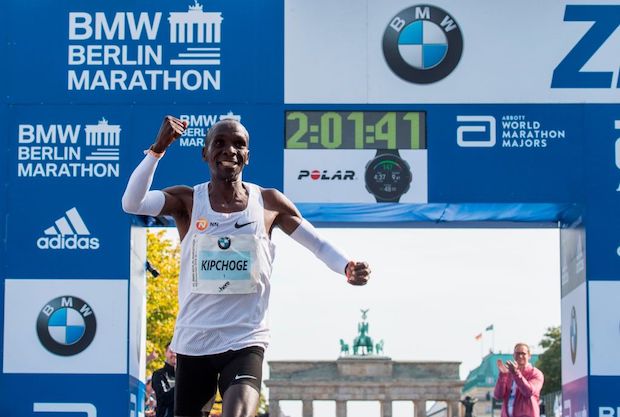Has the world gone mad? There’s Beauden Barrett, the world’s best stand-off, and rugby player of the year seemingly by right, missing a shedload of kickable goals from easy distances to gift an enthralling game to the Springboks. But don’t read too much into it you Twickers types. The All Blacks played at relentlessly high speed, made innumerable handling errors and even took a quick line-out straight to the only Springbok for miles around. They still only lost by a couple of points. I can’t see it happening again. Then the beloved Pumas beat Australia on the Gold Coast and stopped the Rugby Championship becoming a procession.
And there’s Simon Yates winning the Spanish Vuelta, the first time in history that all three Grand Tours have been won by different cyclists from the same country. Yes, Britain. Just think for a moment: before Bradley Wiggins won the Tour de France in 2012, no British rider had come anywhere near winning a Grand Tour. Now we have won nine of the last 20. It is a mind-blowing turnaround.
But the most spectacular moment came in Germany, at a shamefully untelevised Berlin marathon, when the greatest marathon runner in history since Pheidippides, Kenya’s Eliud Kipchoge, smashed the record by a jaw-dropping 78 seconds to record a time of 2:01:39. It’s a time which will not be beaten for years to come. Or will it? What this new record has done is to bring the elusive Everest of distance running, the two-hour marathon, into view. It was Kipchoge who last year just missed two hours in a Nike project on one of the Monza motor racing circuits.
The record would never have stood: the three marathon runners were preceded by a rota of six pace-makers in arrowhead formation, a truck just in front shone a laser onto the surface for the pacemakers to pick the best line, and, this being Nike, a brand-new shoe was involved and a specialist energy drink. In the event, Kipchoge, who is only 33, missed out by just one second per mile.
Kipchoge says that breaking two hours is ‘not rocket science’ though it sounds like it to me. ‘Everything is possible,’ he says. ‘Records are there to be broken.’ In the parallel world of ultramarathons, they don’t come more ultra than Yiannis Kouros, a Greek now living in Melbourne. In 1997 he achieved what is considered one of the greatest sporting feats of all time in the Adelaide 24-hour race. With an average speed of more than 12.5 kph (7.39 mins per mile), he covered 303 kms. How does he do it? ‘When other people get tired they stop,’ says Kouros. ‘I don’t. I take over my body with my mind. I tell it that it’s not tired and it listens.’
Good news for all those morose millions wandering the boulevards of Britain bemoaning the lack of televised football. Uefa wants to get a third European club competition up and running just like the late lamented Cup Winners’ Cup. Then, of course, all three European competitions were much shorter, before the cunning implementation of the pointlessly space-filling ‘league’ format. So all the clubs that do their best to avoid the Europa League will now have to do their best not to end up in this third one. How will this rank in Bournemouth’s priorities? The idea seems to be to spread the love downwards, so all those clubs who look longingly at, say, Burnley getting to play BATE Borisov can now get a share of the hugely exciting action. Which is to say no clubs at all, because every football club acts with the sole purpose of avoiding having to play Bate Borisov at all costs. But soon there will be no avoiding it. Like death, it will be one of life’s inevitabilities.







Comments